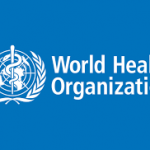By Asma’u Ahmad
The World Health Organisation for the Western Pacific has launched a new tool to protect children from unhealthy food and drink that cause obesity and other serious health problems.
The tool, called the regional profile model, would help governments and policy-makers to more easily identify food and non-alcoholic beverages that should not be marketed to children.
“Nutrient profiles rank foods by their nutritional composition. As such, they are critical tools for the implementation of restrictions on the marketing of food and beverages to children,” the WHO said in a statement.
Across the Western Pacific Region, the WHO said marketers of unhealthy food and beverages targeted children.
These food and beverages are high in calories, saturated and Tran’s fats, salt and sugar, the consumption of which are driving exploding rates for obesity and other health problems in many countries across the region.
 “Children are constantly bombarded with clever marketing campaigns that use advertising, promotion and sponsorship techniques pioneered by the tobacco and alcohol industries,’’ Shin Young-soo, WHO regional director for the Western Pacific, said.
“Children are constantly bombarded with clever marketing campaigns that use advertising, promotion and sponsorship techniques pioneered by the tobacco and alcohol industries,’’ Shin Young-soo, WHO regional director for the Western Pacific, said.
He said marketing played a major role in shaping the children’s diet, preferences and consumption patterns.
“Embedded early on, these effects last a lifetime, so we must protect our children’s health from these harmful influences,’’ Shin said.
WHO said evidence showed a link between the exposure to marketing and unhealthy dietary behaviours.
“Unhealthy diets are a key risk factor for non-communicable diseases in children, including obesity and tooth decay.”
In spite of this evidence, the WHO said children remained inadequately protected from harmful marketing practices including television, print and billboard advertising, internet, promotion and sponsorship of school and sports events.
The WHO said childhood obesity and diet-related non-communicable diseases are a complex public health problems among children and adolescents across the Western Pacific region.


